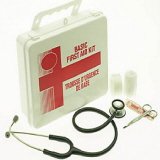|
Open Mind Allergies

Hay Fever, Allergy And Asthma Open Mind asks, Are You a Sufferer? Hay fever is a chronic condition characterized by sneezing, nasal congestion, runny and itching nose, palate, ears and eyes. If you recognize any of these symptoms chances are, you or some member of your family has experienced hay fever at one time or another. Doctors call it allergic rhinitis. Most people know it as hay fever and if you've got it you're likely to be plagued during the spring and fall seasons by such annoying symptoms as sneezing, congestion, runny nose, itchy throat and red, watery eyes. Allergy has different names.
Click Here! For More Information
Allergy is an inherited trait, a genetic susceptibility towards the production of certain allergy anti-bodies.

Hay fever is basically an allergic reaction to pollens from trees, weed and grasses. Unlike garden flower pollen, which is carried by insects, the dry lightweight pollens which cause allergic rhinitis are generally spread by wind currents which make them difficult to avoid. Additionally, complications from allergic rhinitis can be serious. The same allergens that cause hay fever can reach the lungs causing asthma and other complications. Sinusitis (inflammation of the sinus cavities) and nasal polyps (small outgrowths of the mucous membrane of the nose) may develop. Secondary infections of the ear, larynx and bronchial tubes may occur. Also, prolonged year-round nasal stuffiness and mouth breathing may lead to facial bone growth changes in children.
Unlike hay fever, asthma is a more complex disease involving a reversible constriction of the muscles lining the human airways. It is more often associated with allergy immune cells and can get progressively worse reaching life-threatening stages if not properly controlled. It can be treated more effectively when it is diagnosed early. Open Mind suggests the best therapy of all, however, is avoidance of those things which produce asthma symptoms. This includes allergens, such as house dust mites, pets and irritants, such as tobacco smoke and chemical fumes.
Return from Open Mind Allergies to Health
|












